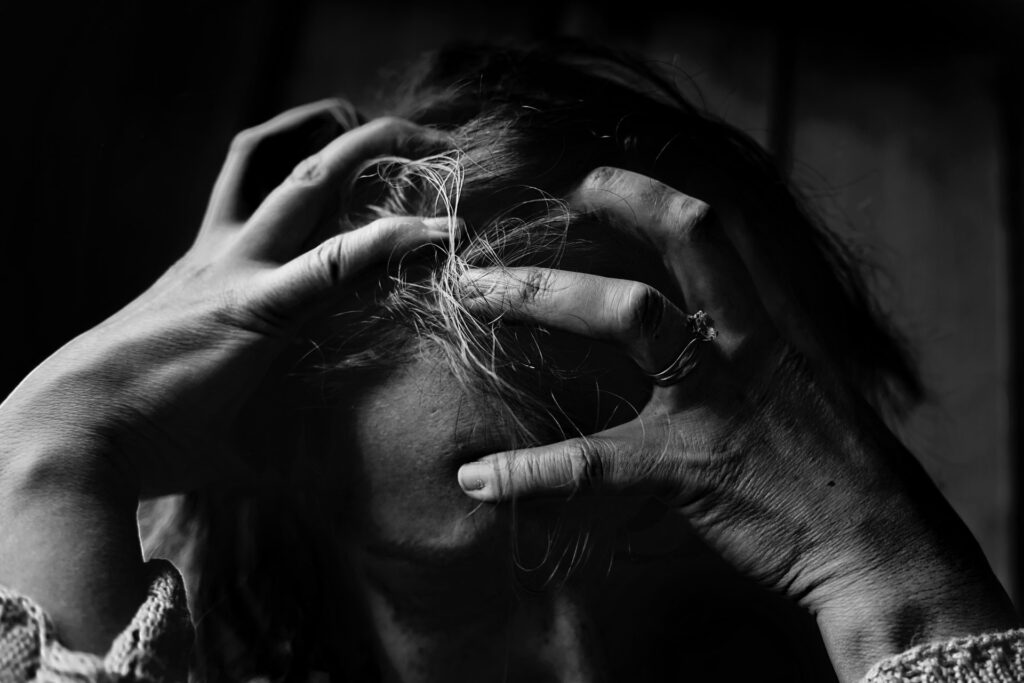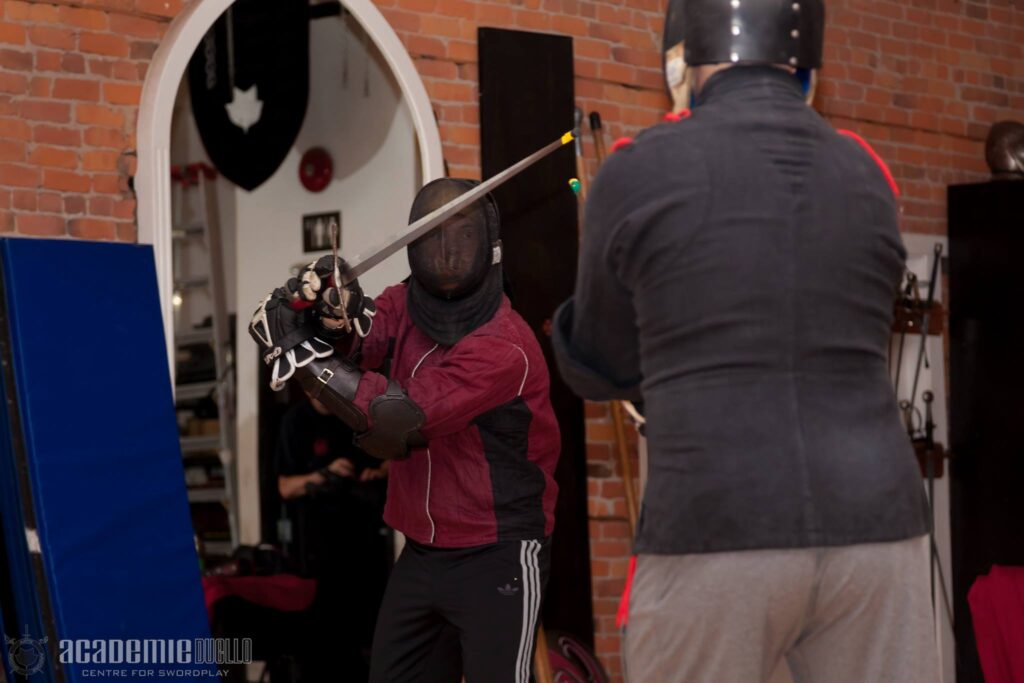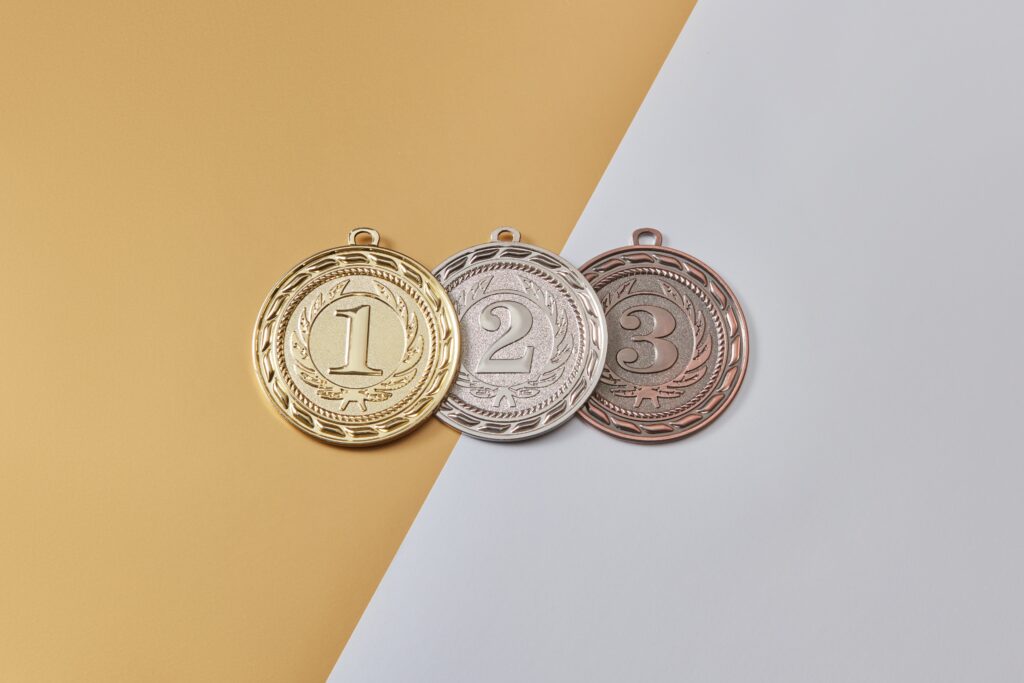Fearsome Acts: Ruminations on Examination

At Academie Duello there are concluding exams at the end of each level of study. Early on in their journey, the students are suitably nervous at the outset and do not seem very reassured by comments that the first few levels are focused on language and familiarity with foundational techniques, not a high degree of proficiency. I’m sure many of them, if asked, would perhaps say they’d rather not have the test, or at least the stress of it.
I also remember preparing the school for our first Silver Cord examination (the fourth of five levels) in August of 2015. This was a monumental undertaking for the students who were preparing themselves for it, all of whom had been studying with me for at least eight years. This event involves two days (nearly ten hours!) of examination that include technique demonstrations, written tests, combative performance, and defence of the research component of the level, all conducted by a board of examiners that includes masters from other schools.
A Case of Nerves
There is always a certain energy that comes up around an examination. A nervous energy. A focus and rigour that comes into one’s study, whether your study has been for years, or, as with our novice students, just a matter of months. Though it’s a stressful experience, I think it’s a positive one.
I find that as an instructor I too experience a level of nervousness as my students step toward their testing. There is a reflection on me and my abilities in their performance and I also have an empathy for their trial. I want the experience to be valuable for them. Pass or fail. I want to feel that I have served them and that the exam itself is serving them.
In the past I have been a part of martial arts schools that did not have levels, ranks or examinations. My instructors in these schools sought a type of purity that comes from not having particular objectives. They sought to avoid creating a false path of progression or creating a hierarchy between their students they didn’t feel reflected the greater journey of their art. I think some also didn’t like the stress for themselves or their students.
I appreciate both sentiments, yet, I also appreciate the meaningfulness of trials and the climax that comes at their end. There is something important in our lives about working toward a particular outcome, facing the stress of that, feeling like you don’t want to go through with it and going through with it anyway.
There is also an importance to meeting a test and failing, picking yourself up, processing it, realizing you can get through that too, and going through the testing process again. There is a stress and determination required in pushing to the summit that adds to the potency of that event and to the value of the lessons you can learn along the way.
What’s the Meaning of it All?
There are pitfalls on all routes. Tests can be made meaningless if their outcomes are prejudged (positively or negatively). A destination does not necessarily make a journey worthwhile, and even if the destination has value, it’s easy to get over-focused on it and miss out on a lot of cool stuff in between.
The end of a journey can also be challenging. I know that after meeting some of my own greatest challenges– such as winning a particularly meaningful tournament and achieving rank in the art I was practicing– that I struggled greatly with a listless sense of “now what?” Yet I think these challenges need to be experienced and faced as well. Life is full of plateaus and distractions. Learning to identify and work with them is essential.
Testing for Life
Life is full of tests. There is really no way to avoid them, though it’s hard to know which ones are going to be the most valuable. What a martial arts examination offers you is this: it is one of the few tests that you can choose, prepare for, and be supported through by people who care. It provides the opportunity to challenge and expand yourself with at least a little bit of structure and hopefully some fun, too. You can do it with peers and mentors and if you fail you are in one of the best environments you can be in to recover and learn from that failure. There is almost no better skill that you could acquire for success in life.
There are many things I have gotten from my practice of martial arts, but perhaps one of the most valuable has been practice in facing life’s trials, and through facing them, I have grown. Good luck to all students facing martial and non-martial challenges in every place imaginable. May you learn all you can from the experience.
Devon



Responses